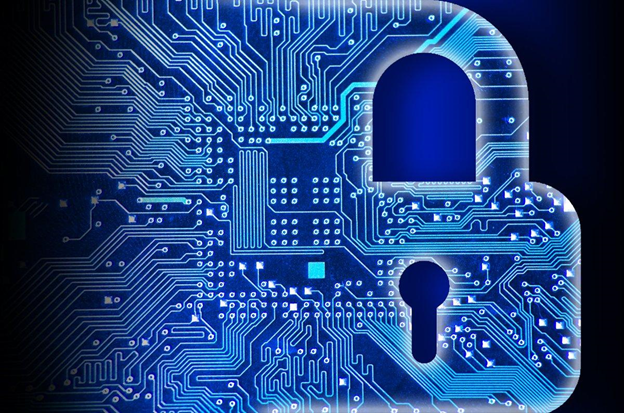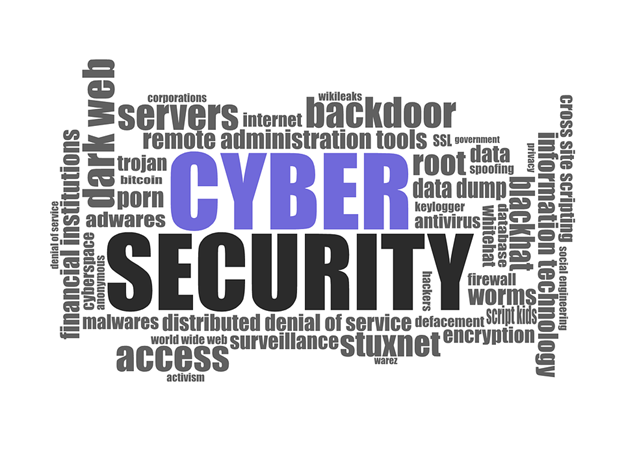Results of a survey conducted in December 2016 by the National Small Business Association revealed that hackers stole an average of $32,000 from small business accounts. Further, the World Economic Forum warns that in the year 2016 alone, close to 430 million new kinds of malware entered the internet which is a nearly 40% rise as against the previous year. This factor is an indication that cyber attacks are likely to rise in the upcoming years in a big way.

Steve Chabot, Chairman of the Small Business Committee says, “With all of the uncertainty facing small businesses in today’s world of e-commerce, it will take vigilance by all federal agencies and the watchful eye of this [Small Business] Committee to ensure the data of small businesses and individual Americans remains secure.”
Small Businesses are Easy Targets for Cyber Attacks
Cyber criminals and hackers target small businesses mainly because they’re fully aware that these organizations have a limited amount of operational funds and cyber security isn’t high on their list of priorities. These enterprises also serve as conduits to reach larger businesses that have sophisticated digital programs in place and are harder to hack. Take for example the case of the high-profile hacking incident involving Target. The company became the victim of a significant data breach that originated from a phishing email opened by a crew member of Fazio Mechanical, a partnering small business that provided refrigeration services.
Yet another factor is that smaller enterprises are unaware of the dangers of cyber crime and the various channels hackers can use to get into their IT systems. If you’re the owner of a small company, you might want to learn about the methods hackers use. Here are some of them.
1. Phishing is the Most Common Strategy
Cyber criminals may send a series of spam emails that seem to originate from official-looking sites of banks like Bank of America or Citibank, to name a few. These fraudulent emails direct workers to update their internet banking passwords and credit card information. When workers accept the request, they are redirected to phony websites where they are prompted to add their personal identification details, credit card numbers, PINs, expiry dates, and other sensitive information. All of this information can be used to initiate cyber attacks on the company digital systems and access details shared by customers and business partners.

2. Ransomware
Hackers may sneak malware into your company IT systems as a result of which all the files get encrypted with a password or encryption code that you cannot decipher. In exchange for the decryption key, code, or password, the hackers may demand that you pay a certain sum of money. Or, they may threaten to sell the information in your systems. The most alarming factor of these forms of cyber attacks is that the criminals may refuse to give up the codes even after you pay up.
3. Malware
A shorter form of the term “malicious software,” malware can be inserted into your IT systems where they work in the background to relay sensitive information to the hacker without your being aware of it. Some forms of malware are also designed to cause damage to your network files.
4. Distributed Denial of Service (DDoS)
Distributed Denial of Service strategies are a form of cyber attacks where the IT criminals flood servers with an overload of requests or large volumes of data as a result of which your website or digital systems shut down and users are unable to access them.
5. Password Attacks
Using different methods, hackers can break into company digital systems by deciphering passwords. The main methods are:
- Dictionary attack where the hacker uses an application to work out the various possible combinations of dictionary words and names of close family members with birth dates to crack the password.
- Brute force attack where the attacker makes multiple attempts at guessing the password until it cracks.
- Keylogging where the hacker tracks the sequence of the user’s keystrokes to guess the login IDs, passwords, and movements through a website.
6. Hacking Attacks
Cyber criminals can gain entry into a company’s digital systems by looking for and accessing an unpatched source, ineffective firewall, or inadequate anti-virus protection programs. Such cyber attacks typically target personally identifiable information (PII) like customer and employee credit card details that forms a part of your company’s database.
7. Human Errors or Intentional Attacks
Employees using unsecure networks to access company systems, opening fraudulent emails, and unintentionally revealing passwords often end up opening avenues for hackers to gain entry into your company database. Some other employees may intentionally give away information in exchange for money especially disgruntled workers that may have been fired.

You Can Counter these Cyber Attacks
Understanding how cybercrime works is the most effective tool you can use to protect your company. Hire the services of an expert IT security team to evaluate your digital systems. They’ll likely recommend that you buy and assign economical refurbished laptops, tablets, cellphones, and other devices for exclusive company use. You can secure these devices with all the necessary firewalls and antivirus software to ward off hackers. Conduct training programs for your employees so that they are aware about the dangers of cyber attacks and the precautions they must take when accessing company networks.
Do keep in mind that cyber criminals are using increasingly sophisticated methods to attack small businesses and extract valuable information that they can sell on the black market. Towergate Insurance warns about the availability of ready toolkits available on the internet that helps novice hackers learn how to conduct cyber attacks. Given all these conditions, you must take all the necessary steps to secure your company and its digital systems against hacking incidents.





